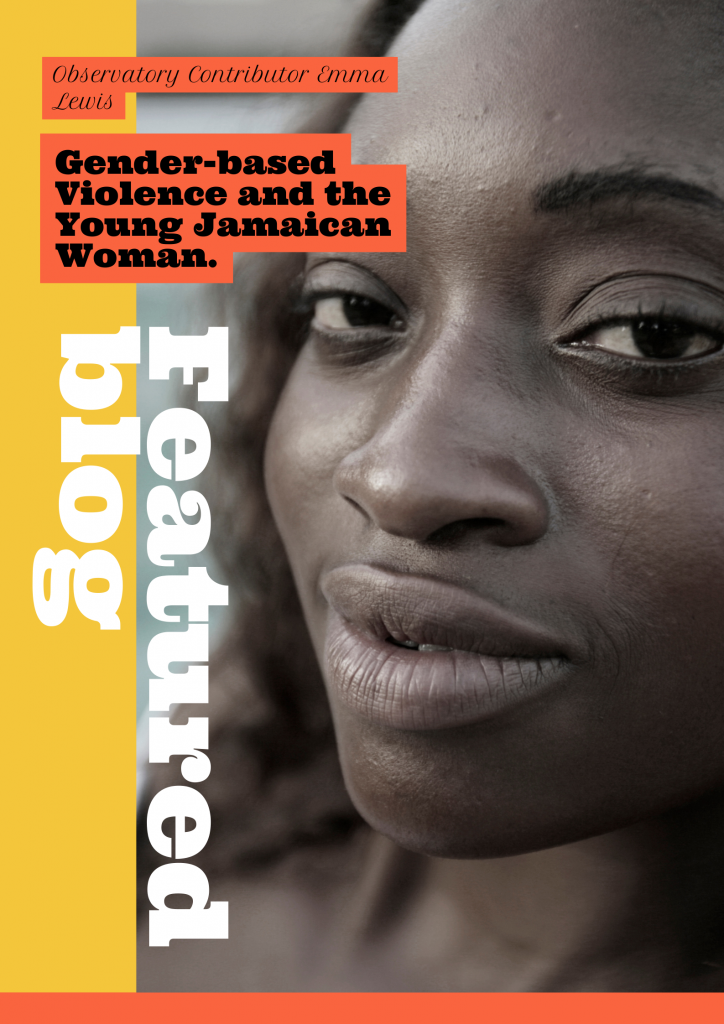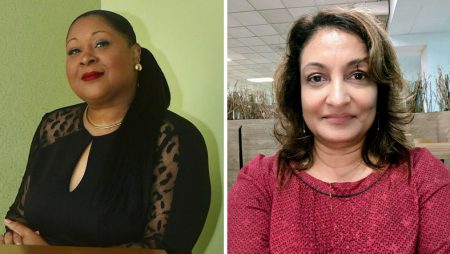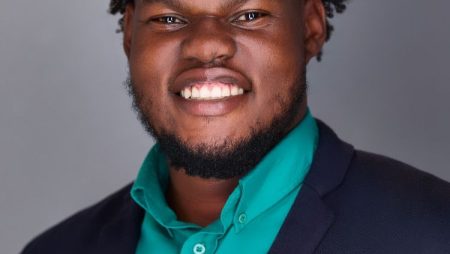Gender-based Violence and the Young Jamaican Woman
“Are we ready to put in the work? Does the Jamaican government value our women and girls? Do they value the work of the CSO’s?”
These challenging questions were posed recently by 30-year-old Rushell Gray. In her own words, Rushell is “an empowered woman, mother, childhood sexual abuse survivor and an advocate.” She is a mentor and Regional Coordinator at the non-governmental organisation Eve for Life, a non-profit founded in 2008 in response to an urgent need for support for young women and children living with and affected by HIV/AIDS.
While seeking to improve the mental and physical wellbeing of these highly vulnerable young Jamaicans, Eve for Life quickly found that many of their clients were quietly struggling with another epidemic that is also steeped in stigma and outdated attitudes: sexual and gender-based violence. Cross-generational and transactional sex – even sex trafficking – may add to the complexities that these women are navigating – often at an extraordinarily young age.
Who is most at risk? According to the Women’s Health Survey 2016 for Jamaica, women in their twenties suffer the highest levels of severe violence from their intimate partner – and younger age groups are not far behind. One in four women (25.2%) has experienced physical violence by a male partner in their lifetime – a similar ratio to other Caribbean countries. According to Eve for Life’s Gail Van Riel, “Girls and young women from poor and rural communities, those who are or are perceived to be LGBTQ+, living with disabilities, girls and women who speak out about political, social and cultural issues and gender inequality are more vulnerable to violence.”
The “victim mentality,” with its accompanying emotions of anger, hurt and blame, leads only to even lower self-esteem and a greater sense of dependency. According to the United Nations Population Fund (UNFPA), during the COVID-19 pandemic, “The global prevalence of anxiety and depression increased by 25 percent, with young people and women – two populations UNFPA serves – affected the most.” The social isolation suffered by women and their children, who were already enduring violence in their homes, was compounded – as were many other social issues. All this was against the background of increasing crime and violence in the society, especially in less privileged neighbourhoods.
The interconnected factors of poverty, lack of education, and unemployment lurk behind the scenes, as this scenario is played out. According to ILO/World Bank estimates for 2021, 31.5 percent of Jamaica’s female youth labour force are not engaged in education, nor training, nor employment. This is a very high percentage.
The picture painted above suggests that young Jamaican women (including teenagers) are out on their own – vulnerable, disempowered, disenfranchised. And yet, why should this be?
Along with other Caribbean countries, Jamaica has ratified the Convention on the Rights of the Child, CEDAW and other critical agreements that protect the rights of women and girls. Jamaica has passed local legislation to complement the rights and protections offered by these international conventions. Jamaica’s Domestic Violence Act (1996) provides enhanced protection to victims of physical and mental abuse from persons they reside with, or are involved with in an intimate or familial relationship.
It must be noted that the Jamaican government’s response to gender-based violence has improved. For example, the Community Safety and Security Branch of the police has developed a training course on Domestic Violence Intervention, endorsed by the National Police College of Jamaica, targeting police officers from all geographic divisions and Domestic Violence Center Managers.
Jamaica’s Ministry of Gender Affairs opened its second domestic violence shelter in December, 2021, with the support of the UN Spotlight Initiative and the European Union. A third is planned.
The EU-funded Spotlight Initiative, with a strong advocacy component, has committed considerable resources into the fight against gender-based violence in Jamaica. At the launch of its 2021 work plan last April, UN Resident Coordinator Garry Conille was quite forthright, noting: “the widespread and seemingly normalized acts of violence is a significant disregard for human rights, and presents a social, economic, and public health emergency of which all Jamaicans should be concerned.”
On that occasion, Mr. Conille urged Jamaican government representatives to speak out against gender-based violence, “wherever it occurs and regardless of the perpetrators.” At around this time, a viral video of a Member of Parliament beating his partner in a parking lot had sparked outrage and subsequent condemnation by the Prime Minister himself – who nevertheless took an “All Violence Matters” approach. The politician was eventually expelled from his party but remains in Parliament as an Independent. His partner did not press charges, but the incident was perhaps an example of the atmosphere of impunity that still clings to gender-based violence in Jamaica. Recently, one of the MP’s colleagues hailed him as a “model MP.”
The voices from Jamaican officialdom, one might suggest, are not loud enough, seeming to reflect this reluctance to address the issue head-on. While civil society organisations such as Eve for Life, the long-established Woman Inc, Women’s Media Watch, Children First, and the recently formed Advocates Network work hard, the epidemic of gender-based violence seems to have merged into the backdrop of the ongoing crime and violence in Jamaican society.
Indeed, a widely prevailing sentiment among Jamaicans is that man-woman conflict is “Fi dem business.” It’s their business, so let us not interfere. This attitude is gradually changing, but perhaps not fast enough. Jamaican media themselves have an important role to play. They need to step up their game and go further than report the “gory details” of the almost weekly instances of the murder, injury and rape of women and girls. Greater training and sensitization of the local media is needed.
So, what else is missing? Affordable psychosocial aid, training surrounding victim-centered case management, the development of more crisis shelters (two or three is clearly not enough) are among the solutions suggested by Eve for Life. The organisation also recommends developing programmes in schools and communities to challenge gender-based violence in various settings. The issue must be addressed head-on, in the communities where it is having such harmful impacts.
Rushell Gray asks pertinent questions: “How can a 15 year- old be referred to as having a “boyfriend” who is 45 years old? That’s a nasty pedophile and should be treated as such. How can a politician who is representing Jamaica be an abuser and was just treated like it’s the norm? Are we serious?” She also advocates for “survivor-friendly” courts, pointing to years-long waiting times before justice is served. In this respect, the human rights lobby group Jamaicans for Justice, with overseas funding, has established a support group and provides justice services for victims of gender-based violence.
So, are Caribbean governments doing all they can to protect our most marginalized young women and girls? And is the Jamaican government doing enough to shift those entrenched attitudes on women’s rights, working more closely with civil society organisations on the ground? Rushell Gray expresses frustration at what she sees as lip service, plans and discussions. She wants more action to combat gender-based violence in Jamaica.
Co-founder of Eve for Life Joy Crawford would like to see a cohesive regional work plan to address the rights of women and girls. She envisions a Caribbean consensus framework that will “trump socio-cultural and moral systems that remain divided on marital rape, legal and safe abortions, definition of rape, age of majority, rights to sexual and reproductive health, family, and wellbeing. When will a regional agenda and accountability bring an end to plea bargaining for pedophiles and predators of young girls?”
Crawford commended Cuba, Trinidad and Tobago, Antigua and Barbuda, St. Kitts and Nevis and Guyana for steps they have taken in this area. The ball is in CARICOM’s court, she suggests, to take this on – for the sake of the region’s women and girls. Including Jamaicans.



